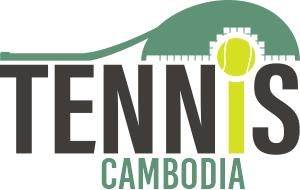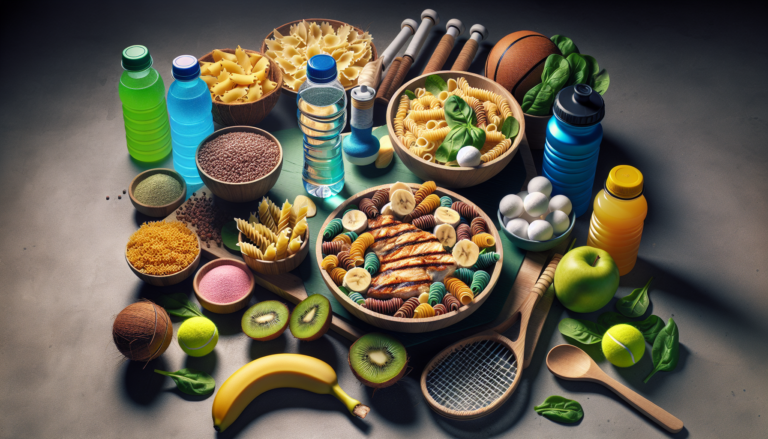Introduction to Tennis Diet
Proper nutrition is a crucial element of success for tennis players at all levels. A well-balanced tennis diet provides the energy, nutrients, and hydration necessary to fuel intense training sessions and maintain peak performance during matches. This article explores the key components of an effective nutrition plan for tennis players, including the importance of carbohydrates, protein, healthy fats, hydration, and timing of meals and snacks.
Nutrition plays a vital role in a tennis player’s ability to perform at their best. The demanding nature of the sport, with its quick bursts of energy, requires a carefully planned diet to ensure players have the stamina and strength to excel on the court. By understanding the role of each macronutrient and implementing strategic eating habits, tennis players can optimize their energy levels, promote muscle repair and recovery, and maintain sharp focus during matches.
The Importance of Carbohydrates in a Tennis Diet
Carbohydrates serve as the primary fuel source for tennis players, providing the energy needed for intense rallies and quick movements on the court. Adequate carbohydrate intake is essential for maintaining muscle glycogen stores, which directly impact a player’s endurance and performance.
When planning a tennis diet, it’s crucial to include a variety of high-quality carbohydrates to sustain energy levels throughout training and matches. Complex carbohydrates, such as whole grains, brown rice, and quinoa, provide a slow and steady release of energy, helping players maintain consistent performance.
Best Sources of Carbohydrates
To ensure optimal carbohydrate intake, tennis players should focus on incorporating the following nutrient-dense sources into their diets:
- Whole grains: Breads, pastas, and cereals made from whole wheat, oats, or quinoa
- Brown rice and other whole grain rice varieties
- Quinoa, a protein-rich grain that provides sustained energy
- Starchy vegetables: Sweet potatoes, squash, and corn
- Legumes: Beans, lentils, and peas
These complex carbohydrates not only provide essential energy but also offer valuable nutrients, such as fiber, vitamins, and minerals, to support overall health and well-being.
Carbohydrate Intake Before and After Matches
Timing of carbohydrate consumption is just as important as the quality of the sources. Tennis players should focus on consuming carbohydrates before and after matches to optimize energy levels and promote recovery.
Before a match, players should aim to consume a meal rich in complex carbohydrates approximately 2-3 hours prior to hitting the court. This allows time for digestion and ensures that the body has sufficient energy stores to draw upon during the match. Examples of pre-match meals include:
- Whole grain pasta with lean protein and vegetables
- Brown rice with grilled chicken and a side salad
- Oatmeal with fruit and nuts
After a match, it’s essential to replenish glycogen stores and promote muscle recovery. Consuming a combination of carbohydrates and protein within 30-60 minutes post-match helps facilitate this process. Some excellent post-match snack options include:
- Whole grain bread with turkey and vegetables
- Greek yogurt with berries and granola
- Smoothie made with fruit, yogurt, and a scoop of protein powder
By strategically timing carbohydrate intake, tennis players can ensure they have the energy needed to perform at their best and recover effectively between matches.
Protein Needs for Tennis Players
In addition to carbohydrates, protein plays a vital role in a tennis player’s diet. Adequate protein intake is necessary for muscle repair, growth, and maintenance, all of which are crucial for tennis performance and injury prevention.
Tennis players engage in repetitive, high-intensity movements that can lead to muscle damage. Consuming sufficient protein helps repair and rebuild muscle tissue, allowing players to recover faster and maintain their strength on the court.
Optimal Protein Sources
When selecting protein sources, tennis players should focus on lean, high-quality options to support muscle health and overall well-being. Some of the best protein sources for tennis players include:
- Fish: Salmon, tuna, and cod
- Poultry: Chicken and turkey breast
- Lean meats: Sirloin, tenderloin, and flank steak
- Eggs: Particularly egg whites
- Low-fat dairy: Greek yogurt, cottage cheese, and skim milk
- Plant-based proteins: Tofu, tempeh, and legumes
Incorporating a variety of these protein sources throughout the day helps ensure that tennis players are meeting their protein needs and supporting optimal muscle function.
Protein Timing for Recovery
Just as with carbohydrates, the timing of protein intake is crucial for maximizing its benefits. Consuming protein shortly after a training session or match promotes muscle recovery and repair.
Aim to consume a protein-rich snack or meal within 30-60 minutes post-exercise. This window of opportunity allows the body to efficiently utilize the protein for muscle synthesis and recovery. Some examples of post-workout protein options include:
- Whey protein shake
- Grilled chicken with sweet potato
- Greek yogurt with berries
- Tuna salad on whole grain bread
By prioritizing protein intake and timing, tennis players can support their muscles, reduce the risk of injury, and enhance their overall performance on the court.
Healthy Fats for Sustained Energy
While carbohydrates and protein often take center stage in a tennis player’s diet, healthy fats also play a crucial role in maintaining optimal performance. Fats provide a concentrated source of energy, support hormone production, and aid in the absorption of fat-soluble vitamins.
When incorporating fats into a tennis diet, it’s essential to focus on healthy, unsaturated sources that offer additional nutritional benefits. These fats help promote sustained energy levels, reduce inflammation, and support overall health.
Best Sources of Healthy Fats
To ensure a well-rounded tennis diet, players should incorporate the following healthy fat sources:
- Nuts and seeds: Almonds, walnuts, chia seeds, and flaxseeds
- Avocados: A nutrient-dense fruit rich in monounsaturated fats
- Olive oil: A heart-healthy option for cooking and dressing salads
- Fatty fish: Salmon, sardines, and mackerel, which provide omega-3 fatty acids
- Nut butters: Natural peanut butter or almond butter
By including these healthy fat sources in moderation, tennis players can support their energy levels, promote satiety, and maintain overall well-being.
It’s important to note that while healthy fats are beneficial, they are also calorically dense. Tennis players should be mindful of portion sizes and balance their fat intake with their overall energy needs to maintain optimal body composition and performance.
Hydration Strategies for Tennis Players
Proper hydration is a critical component of a tennis player’s nutritional plan. During intense training and matches, players can lose significant amounts of fluid through sweat, leading to dehydration if not adequately replaced.
Dehydration can have detrimental effects on performance, causing fatigue, decreased coordination, and impaired decision-making. To maintain optimal hydration levels, tennis players should implement the following strategies:
Importance of Water
Water is the foundation of a tennis player’s hydration plan. Aim to drink water consistently throughout the day, not just during training or matches. A general guideline is to consume at least half your body weight in ounces of water daily. For example, a 150-pound player should drink at least 75 ounces (2.2 liters) of water per day.
In addition to baseline hydration, tennis players should drink water before, during, and after training sessions and matches. Aim to drink:
- 16-20 ounces (473-591 ml) of water 1-2 hours before playing
- 4-8 ounces (118-236 ml) of water every 15-20 minutes during play
- 16-24 ounces (473-710 ml) of water for every pound lost during play
By prioritizing water intake, tennis players can maintain optimal hydration levels and support their performance on the court.
Electrolyte Management
While water is essential, tennis players also need to replace electrolytes lost through sweat. Electrolytes, such as sodium, potassium, calcium, and iron play a crucial role in muscle function, fluid balance, and energy production.
To ensure adequate electrolyte intake, tennis players can incorporate the following strategies:
- Consume electrolyte-rich foods: Bananas, oranges, spinach, and yogurt
- Use electrolyte tablets or powders added to water during intense training or matches
- Drink coconut water, a natural source of electrolytes
- Add a pinch of sea salt to meals or snacks
By addressing both water and electrolyte needs, tennis players can optimize their hydration status and maintain peak performance on the court.
| Electrolyte | Function | Food Sources |
|---|---|---|
| Sodium | Fluid balance, muscle contraction | Salt, electrolyte drinks, pickles |
| Potassium | Muscle function, heart health | Bananas, potatoes, spinach |
| Calcium | Bone health, muscle contraction | Dairy products, leafy greens, fortified foods |
| Iron | Oxygen transport, energy production | Red meat, poultry, beans, fortified cereals |
Meal Timing and Planning
Effective meal timing and planning are essential for tennis players to optimize their performance and recovery. By strategically structuring meals and snacks around training and competition, players can ensure they have the necessary fuel to perform at their best.
Proper meal timing helps maintain stable blood sugar levels, prevents hunger-related fatigue, and promotes muscle recovery. Tennis players should focus on the following key eating periods:
Pre-Match Nutrition
Eating a well-balanced meal 2-3 hours before a match provides the body with the energy needed for optimal performance. A pre-match meal should be rich in complex carbohydrates, moderate in lean protein, and low in fat and fiber. This combination allows for sustained energy release without causing digestive discomfort. Examples of pre-match meals include:
- Whole grain pasta with grilled chicken and steamed vegetables
- Brown rice, lean beef, and roasted sweet potato
- Oatmeal with low-fat milk, berries, and a sprinkle of nuts
In addition to the main meal, players may benefit from consuming a small, easily digestible snack 30-60 minutes before the match. Simple carbohydrates, such as fruit or a sports drink, can provide a quick energy boost without causing stomach upset.
Post-Match Recovery Meals
Consuming a recovery meal within 30-60 minutes after a match is crucial for replenishing energy stores and promoting muscle repair. The post-match meal should contain a combination of carbohydrates and protein in a 3:1 ratio. This ratio optimizes glycogen resynthesis and supports muscle recovery. Some examples of post-match recovery meals include:
- Whole grain bread with turkey, vegetables, and hummus
- Quinoa salad with grilled salmon and mixed greens
- Greek yogurt with fruit and granola
- Smoothie made with milk, frozen berries, banana, and protein powder
In addition to the main recovery meal, players should continue to eat balanced meals and snacks throughout the day to support ongoing recovery and prepare for the next training session or match.
By prioritizing meal timing and planning, tennis players can optimize their nutritional intake, enhance performance, and promote efficient recovery. Working with a sports dietitian can help players develop individualized meal plans that meet their specific energy and nutrient needs.
Vitamins and Minerals for Optimal Performance
While macronutrients like carbohydrates, proteins, and fats often receive the most attention in a tennis player’s diet, vitamins and minerals also play a crucial role in supporting optimal health and performance. These micronutrients are essential for various bodily functions, including energy production, immune support, and muscle contraction.
To ensure adequate vitamin and mineral intake, tennis players should focus on consuming a wide variety of nutrient-dense foods. A well-balanced diet that includes fruits, vegetables, whole grains, lean proteins, and healthy fats typically provides the necessary micronutrients. However, in some cases, players may benefit from targeted supplementation under the guidance of a healthcare professional.
Essential Vitamins
The following vitamins are particularly important for tennis players:
- Vitamin D: Supports bone health, muscle function, and immune system. Found in fatty fish, egg yolks, and fortified foods.
- Vitamin C: Acts as an antioxidant, supports immune function, and aids in collagen production. Found in citrus fruits, berries, and leafy greens.
- B Vitamins: Play a role in energy metabolism, red blood cell formation, and nervous system function. Found in whole grains, lean meats, and legumes.
- Vitamin E: Functions as an antioxidant and supports immune health. Found in nuts, seeds, and vegetable oils.
Key Minerals
Tennis players should also focus on consuming adequate amounts of the following minerals:
- Calcium: Essential for bone health and muscle contraction. Found in dairy products, leafy greens, and fortified foods.
- Iron: Necessary for oxygen transport and energy production. Found in red meat, poultry, fish, and legumes.
- Magnesium: Supports muscle and nerve function, energy metabolism, and bone health. Found in nuts, seeds, whole grains, and leafy greens.
- Potassium: Plays a role in fluid balance, muscle contraction, and heart function. Found in fruits, vegetables, and dairy products.
To ensure optimal vitamin and mineral intake, tennis players should:
- Consume a variety of colorful fruits and vegetables
- Choose whole grain options over refined grains
- Incorporate lean protein sources at each meal
- Include healthy fat sources like nuts, seeds, and avocado
- Consider targeted supplementation if deficiencies are identified
By prioritizing a nutrient-dense diet and addressing any potential micronutrient deficiencies, tennis players can support their overall health, enhance recovery, and optimize their performance on the court.
Consulting a Nutritionist
While understanding the general principles of a tennis diet is essential, every player has unique nutritional needs based on their age, gender, body composition, training intensity, and individual goals. Consulting with a sports nutritionist can help players develop personalized nutrition plans that optimize their performance and support their overall health.
Benefits of Professional Guidance
Working with a sports nutritionist offers several advantages for tennis players:
- Personalized recommendations: A nutritionist can assess a player’s individual needs and create a customized meal plan that takes into account their specific goals, food preferences, and any dietary restrictions.
- Nutrient timing strategies: A professional can guide players on optimal meal timing to ensure they have the necessary energy for training and competition while promoting efficient recovery.
- Supplement guidance: If supplements are necessary, a nutritionist can recommend safe and effective options based on a player’s needs and goals.
- Ongoing support: Regular check-ins with a nutritionist allow for adjustments to the meal plan as a player’s needs change over time.
Creating a Sustainable Diet Plan
When working with a sports nutritionist, the focus should be on creating a sustainable and enjoyable diet plan. The most effective nutrition strategies are those that players can maintain long-term without feeling overly restricted or deprived.
Some key elements of a sustainable tennis diet include:
- Emphasis on whole, minimally processed foods
- Flexibility to include favorite foods in moderation
- Practical meal planning and preparation strategies
- Consideration of travel and dining out options
- Regular evaluation and adjustment based on progress and feedback
By collaborating with a sports nutritionist, tennis players can develop personalized, sustainable nutrition plans that support their performance goals and promote long-term health and well-being.
Implementing a well-balanced and strategic tennis diet is essential for players looking to optimize their performance, recovery, and overall health. By prioritizing key nutrients, timing meals effectively, and staying hydrated, players can gain a competitive edge on the court. Consulting with a sports nutritionist can provide personalized guidance and support in creating a sustainable nutrition plan tailored to individual needs and goals. With a strong commitment to proper nutrition, tennis players can fuel their bodies for success and reach their full potential in the sport.
#ED#






